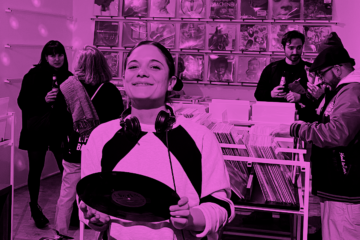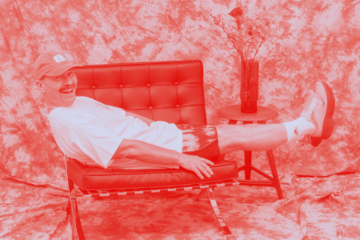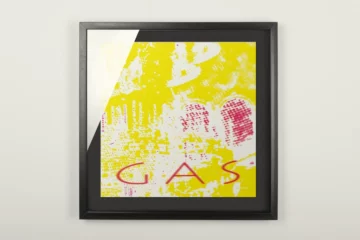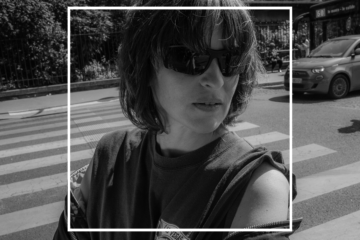Tzusing rebels against all rules — with his dangerous groove of techno, EBM and industrial, the Malaysian-born producer and DJ became known among deconstructed dandies. His first album was released on L.I.E.S., the second recently saw its lights on PAN Records — both labels are not exactly known as institutions of artistic convention. Tzusing has only a pinched smile for them anyway. »Unz, unz, unz“«, as he says, may be nice at times. In between, though, he squeezes footwork and Italo disco, sometimes something completely different. A mixture with which he has cleared dancefloors all over the world, turned promoters against him and convinced the owner of Shanghai’s most famous club Shelter.
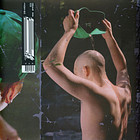
Green Hat
Since the Corona pandemic, Tzusing has been living in Taipei, the capital of Taiwan and the place he calls home. But as an »angry kid« who rebelled against his Asian upbringing with techno from his brothers’ CD collection, Tzusing got around early. His parents sent him to the U.S. to refine himself, where he found records by Aphex Twin and soon played his first DJ gig in Chicago. Back in China, Tzusing opened a bike store and built up a so-called scene at Shelter — a club that was later called ALL and would become one of the most important in Asia.
For some years now, Tzusing has also been touring in Europe, mostly at festivals and in clubs that understand his sound, as he says. That this is not always easy, he readily admits. To be different, to play with listening habits, to pluck them like on his album »Green Hat«: That’s what makes Tzusing fun and makes him one of the most exciting electronic artists from Asia. Why he compares Thai boxing with therapy sessions, what the Shelter had to do with the Sex Pistols and which story he shares with Bill Kouligas from PAN, Tzusing explains in this interview.
You once said that you’re an anxious person, but listening to anxious music puts you at ease. Why?
Tzusing: It’s strange, but it’s true. Hearing anxiety makes me feel good.
Where does this anxiety come from?
It has to do with being brought up in a harsh family. Chinese people expect a lot from their kids. They are strict. Certain things the West would perceive as abuse is normal in Asia. Growing up in that environment had a profound effect on me.
Is that your first memory you have, the strict education?
To be honest, my first memory is anger. I was a pissed off kid. That never changed in a way. So, it’s super easy for me to make this anxious music. It is the easiest thing to do for me. I feel so close with this fountain of anger and hate. Making this music is always catharsis.
What comes to your mind when you think of your early childhood days?
There are two memories that stick to my head. Jumping on our kitchen table while screaming my head off. And watching Michael Jackson. I was blown away by him when I was three years old. It was the »Beat It« music video that I remember so vividly.
»You always read about music history and scenes happening … But I experienced seeing a scene build up in real time.«
Tzusing
I read in an interview that you have ADHD…
I have a song called »O.D.D.« It’s short for oppositional defiant disorder. I found that to be really funny.
Isn’t that like always questioning rules and stuff?
I definitely think I have it, yeah. But I never got it checked. Taiwan and Asia in general are not really into psychologists.
No?
It is slowly getting into Taiwan and China. But let’s say you tell someone in Taiwan to go to a shrink, they would be offended. People look at it like they are crazy when you go to a psychologist. Asia is still a bit backwards when it comes to mental health.
Your music becomes…
… a therapy session, but I can’t say because I’ve never attended one. It’s probably more similar to like a Muay Thai class, you know, this Thai kickboxing classes.
You had studios both in China and Taiwan. When did you decide to get away from Shanghai?
Last year. China was very closed off during the pandemic. At that point, they didn’t have a real plan about opening up again anytime soon. So I had to move if I wanted to get back on track. That was the main reason, to have the freedom to travel the world and play some gigs.
How was it to leave Shanghai behind?
In a way, leaving the city felt like the end of a chapter. A good friend moved to Japan. The owner of the club I used to DJ all the time went back to England, so…
The club you mention was Shelter, right?
It was Shelter in the past, but it turned into another club called ALL. He sold it during the pandemic and moved back to the UK, though. Thing with Shelter was: You always read about music history and scenes happening … But I experienced seeing a scene build up in real time. People weren’t interested in this culture before, but we build it up. There was attention. Younger kids got interested in what we were doing. There was a fashion scene in Shanghai going on in parallel. And a lot of fashion people hung out in the club. Obviously, it wasn’t as significant as the Sex Pistols in London. But it could definitely see it go down one day reading about it.
And you were there from the very beginning.
Yeah, I moved to Shanghai in 2011. What I felt was: My generation that was in Shelter and later in ALL, there was a distinct difference to what was before. It wasn’t just expats that took what was happening in Europe and reproduce it here. We had an identity. We build it.
What was so special to ALL?
Okay, this never gets talked about. It has a lot to do with my good friend Kim Laughton, he is a visual artist. He designed the club. When Gaz opened ALL, Kim made it very clear with his design that he wanted the music policy to be very progressive. We shouldn’t have these legacy nights like … It is so mean saying this … It was clear that the club is not for the classic house and techno. The booking should reflect the current climate of the most avantgarde shit going on in the world. And we really tried for that. It also was something different to a club like Berghain with its strict door policy. If you make your club so cool, people you don’t want there won’t even be there anymore. Instead of having an assholish door policy, you just make the club so cool that only people turn up that really want to be there. Kim had all these ideas how the club should be. And it worked out.
»Wenn du aber weißt, was du tust, und die Tanzfläche trotzdem leer ist, ist das nicht deine Schuld. Die Leute haben dann einfach keinen Geschmack.«
Tzusing
It seems to me that there was a real openness to new forms of electronic music.
The first time I played Shelter during the early 2010s, I cleared the floor. I was playing a techno set, but I also played hip hop from like Dead Prez. Eventually, Gaz came over to me and said, don’t worry about it, fuck em! What club boss does that? He backed me up. So I could take a lot of chances. I also remember him telling me: If you don’t know what you are doing and you clear the dance floor. Fuck you then! if you know what you are doing, though and the dance floor clears, it is not your fault. People just don’t have taste then.
You ended up with L.I.E.S because of this club, right?
It was through Douglas Lee, a Korean-American producer who runs under An-i. He put out some records on a label called Minimal Wave. They are insane. We hung out at Shanghai a couple years back. We really got along. I sent him some songs afterwards. He thought they were really good. So he sent them to Ron. I didn’t know that he knew Ron Morelli. But they are old friends.
How did you get to know Bill Kouligas from Pan?
I was playing Unsound Festival, doing what I do – playing Techno and halfway through I started with Footwork. The dancefloor was like: What the fuck! I lost the crowd there. Afterwards I was feeling shitty. But Bill came up to me and said: That was incredible! He was just super supportive. At that time a lot of promoters were giving me shit.
For clearing the floor?
I mean I cleared some floors, yeah. When I first started touring Europe in 2015, I would play Techno, EBM, Italo Disco, maybe some New Beat and House. It was really diverse but still more coherent to what I do now. A Techno track goes like: Unz, Unz, Unz. But a Footwork track is not like that.
You once said that you don’t want to belong.
Isn’t that cooler? Essentially, if you make art, you try to be as different as possible from everything else around you.
Isn’t that an eternal struggle to resist?
No, it’s fun! You don’t evolve or change anymore when you’re pigeonholed. I don’t want to talk shit about anyone, but: producers who still do the same stuff they did 20 years ago scare me.
How often does it happen that you leave the club because of that?
In Europe, I don’t really go to clubs. Also, my agent is really good at booking me for interesting festivals and clubs. He wouldn’t book me to a tech house festival. So I don’t have to deal with that. But: in Taiwan, when I go out with my friends, I always find the music in clubs boring. All the time.
Really?
I am older and jaded, but I think: It’s really hard to be a good DJ. You need to collect a lot of music. And you need to know how to put it together well. Both of that coming together is extremely rare. Yousuke Yukimatsu is one of my favorite DJs. He digs like a crazy person. And he knows how to put it together like no one else.
Are you scared of belonging at some point of your life?
I would definitely quit doing what I do, yeah. If I don’t have any new ideas, my time is up. It’s just very uninspiring to do what has already been done so many times. In a way, it’s like watching somebody at work doing in a cubicle. Music is not supposed to be a 9 to 5. Music is supposed to be inspirational and bring out something new.



